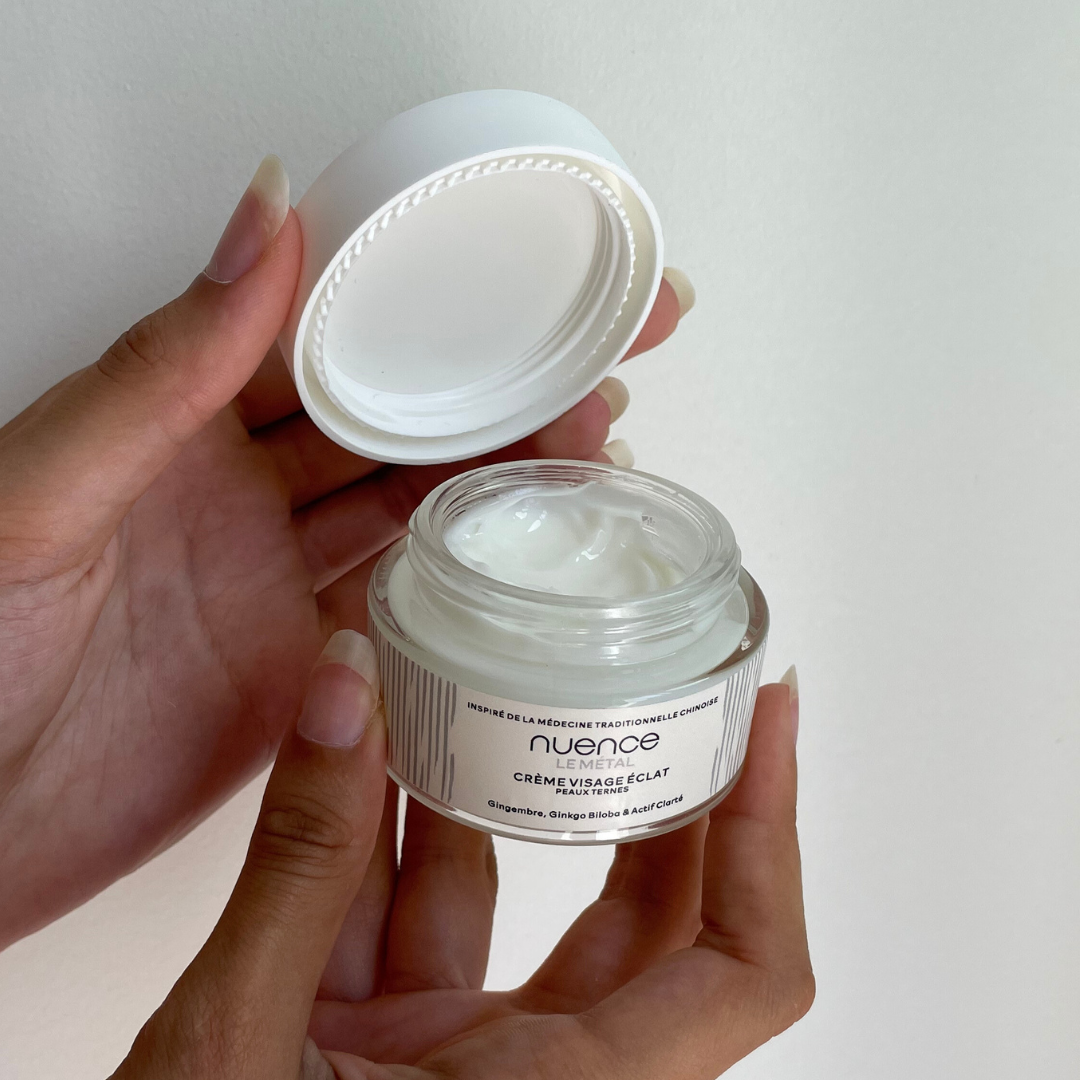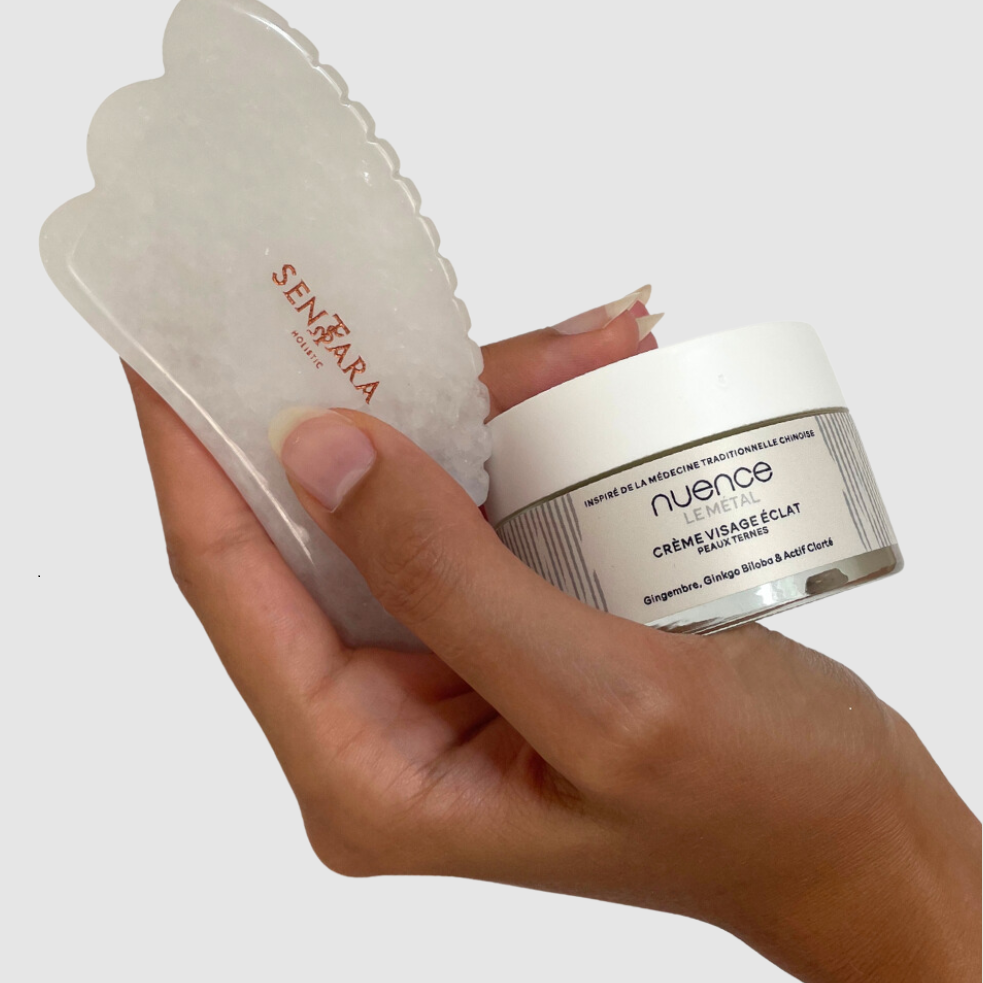Introduction
Fermented foods have conquered our modern plates: kombucha, kimchi, kefir, miso, tempeh… They are celebrated for their digestive benefits, their richness in probiotics, and their artisanal character. But beyond the trend, what does Traditional Chinese Medicine (TCM) tell us about these living treasures? How can we integrate them into a holistic approach to well-being? Here is an in-depth article from the Nuence MTC blog on fermented drinks and foods.
1. What is fermentation?
Fermentation is a natural process where microorganisms (yeasts, bacteria, molds) transform sugars into acids, gases, or alcohol. It allows:
- To preserve food without cooking
- To develop complex flavors
- To create living nutrients that are beneficial for the microbiota (intestinal flora).
In TCM, this process is seen as a transformation of food Qi , a subtle activation of the energy contained in the ingredients.
2. Digestion, Qi and microbiota: everything is connected
In Traditional Chinese Medicine (TCM), the body and mind are never separate. Emotional balance and vitality depend on the proper circulation of Qi (vital energy), Blood (Xue) , and harmonious digestion. The gut microbiota, although not explicitly named as such in ancient texts, is now associated with the Spleen (Pi) and Stomach (Wei) , considered the "central hub" for the transformation of food into energy.
-
The Spleen governs the transformation and transport of nutrients. If it is weakened, this leads to fatigue, mental fog, rumination, and emotional instability.
-
An imbalanced microbiota (dysbiosis) disrupts this function, leading to stagnation, internal dampness, and weakening of Qi.
-
A healthy microbiota , on the contrary, supports the production of Qi and Blood, nourishes the Heart (Xin) and Liver (Gan), and promotes a smooth flow of emotions.
Fermented foods, when well tolerated, can:
- Strengthen digestive Qi by facilitating assimilation
- Reduce internal moisture (Shi), often linked to stagnation
- Supporting the Shen (Spirit) through a balanced gut microbiota
Indeed, Traditional Chinese Medicine (TCM) considers that a balanced microbiota promotes mental clarity, emotional stability, and vitality. because it supports harmony between the organs, Qi (vital energy) and emotions.
3. A Fermented World Tour: Between Tradition and Modernity
🔹 Kombucha (China)
- Lightly sparkling fermented tea
- Tonifies the Liver, promotes the circulation of Qi
- Consume in moderation to avoid excessive acidity.
Kombucha is available ready - made in stores (as a sparkling beverage), but you can also make it at home with tea and a SCOBY ( Symbiotic Culture Of Bacteria and Yeast: the "mother" of kombucha). You'll need jars, breathable fabric, and patience! It can be flavored with Traditional Chinese Medicine (TCM) herbs: ginger, dandelion, peppermint , etc.

🔹 Kimchi (Korea)
- Spiced fermented cabbage
- Warms the Yang, stimulates digestion
- Caution: It is not recommended in cases of internal heat or hot flashes.
It is sold in jars in stores, often in the refrigerated section or in Asian grocery stores, and can be incorporated into many recipes: vegetarian bowls, soups, salads, fried rice… In Chinese medicine, kimchi is considered a pungent and warming food that stimulates Yang , mobilizes Qi , and warms the digestive system . It is particularly helpful in cases of internal cold , stagnation , or slow digestion.
However, its spicy and fermented nature can aggravate internal heat in people prone to hot flashes, irritability, or digestive inflammation. It should therefore be incorporated judiciously, according to individual constitution and the season.

🔹 Kefir (Caucasus)
- Fermented milk or water
- Nourishes Yin, hydrates, supports intestinal flora
- Ideal during periods of dryness or digestive fatigue
Like Kombucha, kefir is available ready-to-use commercially, particularly in organic stores, the fresh produce sections of supermarkets, and some delicatessens or online.
🔹 Miso and tempeh (Japan/Indonesia)
- Fermentation of soybeans, rice or barley,
- Provides easily digestible plant-based protein
- To be incorporated into the diet

| Type of miso | Nature | Target organ | Ideal for… |
|---|---|---|---|
| Barley miso (mugi miso) | Lukewarm | Spleen, Stomach | Digestive fatigue, seasonal transition |
| Rice miso (shiro miso) | Neutral to lukewarm | Spleen, Lung | Daily, gentle, children |
| Soy miso (hatcho miso) | More yang, saltier | Kidney, Liver | Internal coldness, profound fatigue |
| Use | How to do | Trick |
|---|---|---|
| Miso soup | Dissolve 1 tablespoon of miso in a little hot (not boiling) water, then add it at the end of cooking. | Never boil miso to preserve its beneficial bacteria. |
| Broths and sauces | Add to a base of broth, vinaigrette, marinade or noodle sauce | Pairs well with ginger, sesame, lemon |
| Spreads | Mix with sesame paste, lemon, garlic, olive oil | Delicious on wholemeal bread or steamed vegetables |
| Roasted or pan-fried vegetables | Dilute in a little water or oil and drizzle over the vegetables at the end of cooking. | It enhances carrots, sweet potatoes, mushrooms |
| Tofu or tempeh | Marinate with miso + tamari + ginger + garlic | It brings depth and umami |
4. Fermentation and energy balance
In TCM, each food has a thermal nature (cold, warm, hot) and an energetic flavor (sour, bitter, sweet, pungent, salty), which influence Qi, organs, and emotions.
Fermented foods are often:
-
Acids : they mobilize the Liver, promote the circulation of Qi and help to dissipate emotional stagnation.
-
Whether cold or lukewarm , depending on their preparation, they can cool or balance internal heat — to be adapted according to each person's constitution.
5. Tips for holistic integration
- Start slowly : small quantities, chew well.
- Adapt to the season : kefir in summer, miso in winter
- Avoid in cases of Spleen deficiency and chronic fatigue
- Avoid excessive sugar, alcohol, fatty or cold foods , which weaken the Spleen
- Opt for artisanal products : unpasteurized, without additives.
Fermented foods and drinks can be incorporated into an anti-inflammatory diet , and their role is even central in some holistic nutritional approaches. Firstly, because they promote a balanced microbial flora, which is essential for regulating systemic inflammation. Secondly, because they improve the absorption of nutrients (such as antioxidants and essential fatty acids), which themselves have anti-inflammatory effects. Finally, they modulate the immune response by reducing intestinal permeability and inflammatory reactions linked to dysbiosis ( (imbalance of the intestinal microbiota).
Conclusion
Fermentation is more than just a culinary technique; it embodies a transformation that makes food more digestible and enriches the gut microbiota. In Traditional Chinese Medicine, it supports the digestive organs, nourishes the microbiota, and contributes to the balance of Qi, Blood, and Shen. Incorporating fermented foods into your daily routine is choosing a gentle path toward greater mental clarity, emotional stability, and vitality.
And you, what fermented foods or drinks would you like to adopt or reintegrate into your wellness ritual?








